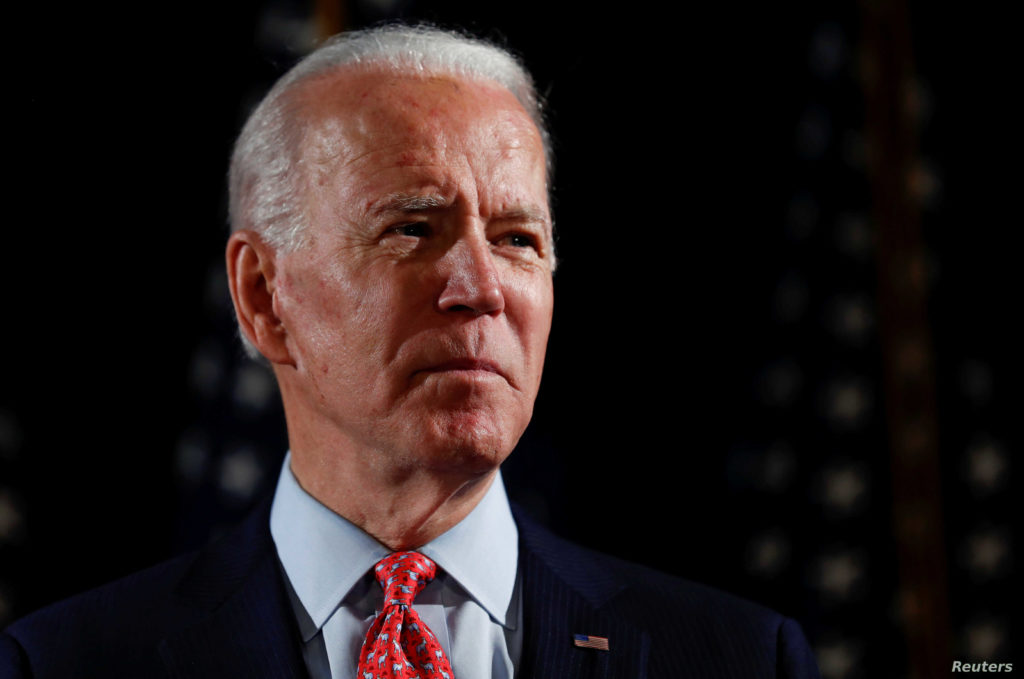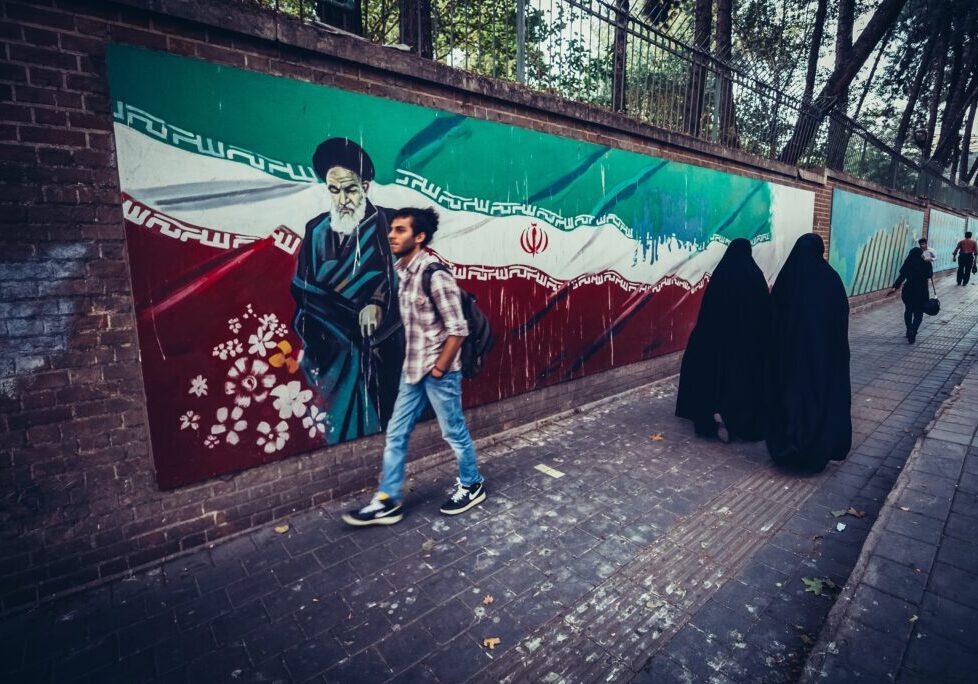Australia/Israel Review
Biden: His time
Nov 24, 2020 | BICOM

US policy in the Middle East underwent drastic changes during the Trump Administration. President-elect Joe Biden will thus confront a much-changed region from the one left during his days as Vice President under President Barack Obama. Biden will likely seek to transition away from current US policies left by President Donald Trump toward new ones without alienating allies or causing greater uncertainty in the Middle East.
Trump’s most impactful regional policies came in two areas: Iran and Israel.
Regarding Iran, the Trump Administration removed the US from the Joint Comprehensive Plan of Action (JCPOA) nuclear agreement and reimposed unilateral sanctions – as part of its “maximum pressure campaign” – to force the Islamic Republic to renegotiate a more comprehensive agreement over nuclear, regional and ballistic missile issues. Trump also oversaw the assassination of Qassem Soleimani, leader of the Islamic Revolutionary Guard Corps (IRGC) Quds Force, who controlled the plethora of Shi’ite militias that are active in most of the conflicts across the region. Iran has managed to withstand American pressure, although it remains to be seen for how much longer.
In an Israeli-Palestinian context, the Trump Administration was perceived to be one of the most “pro-Israel” administrations in history. It recognised Jerusalem as Israel’s capital and subsequently moved its embassy there. It recognised Israeli sovereignty over the Golan Heights. It brokered the Abraham Accords between Israel, the UAE and Bahrain and helped usher in new relations between Israel and Sudan. It cut off funds to the UN agency for Palestinian refugees, UNRWA. And it released its plan for Israeli-Palestinian peace that greatly aligned with the positions of the Government of Israeli Prime Minister Binyamin Netanyahu.
The US Presence in the Middle East
The extent to which Biden’s regional policy will constitute a break from Trump or the continuation of at least some of his policies remains to be seen. In general, the Biden administration will have to evaluate two major driving forces behind US foreign policy in the Middle East over the last decade: the retrenchment of US power (under both Obama and Trump) and the ensuing power vacuums this created; and the presumption, primarily held by the Obama administration – of facilitating “power competition” between the major players in the region.

Anthony Blinken: Biden’s key foreign policy adviser
Anthony Blinken, tipped to be a senior foreign policy advisor (even potentially Secretary of State) in the Biden administration, recently told the Jewish Insider how the President-elect views American involvement in the region. “Whether we like it or not, the world doesn’t organise itself. Until this [Trump] administration, the US played a lead role, doing a lot of that organising – in helping to write the rules, shape the norms, and animate the institutions that govern the way countries relate to each other. And the challenge now is that President Trump has largely abdicated that role and responsibility… putting us in many places in full retreat from our close allies. And the problem is that when we are not engaged, when we don’t lead, then one of two things happen: Either some other country tries to take our place, but probably not in a way that advances our interests or values; or maybe just a bad one does and then you tend to get chaos or a vacuum that is filled by bad things before it’s filled by good things.”
The Challenge from Iran
The future of the JCPOA nuclear deal: Biden has emphasised that the JCPOA remains the best tool for preventing a nuclear-armed Iran but, like Trump, he recognises that the deal has its flaws which need renegotiating. However, Biden has called for a vastly different approach to Trump’s sanction-based policy in order to secure a better agreement with Iran.
Biden described the Trump Administration’s decision to pull out of the agreement as “a self-inflicted disaster”. Speaking to CNN in September, Biden said: “I will offer Teheran a credible path back to diplomacy. If Iran returns to strict compliance with the nuclear deal, the US would re-join the agreement as a starting point for follow-on negotiations. With our allies, we will work to strengthen and extend the nuclear deal’s provisions, while also addressing other issues of concern.”
The US is thus likely to return to a US-led multilateral approach toward Iran. Blinken told the Jewish Insider that “A much stronger way … is making sure that you’re working in concert with allies and partners to stop and push back against Iranian misbehaviour, and the problem with the [Trump] Administration’s having torn up the nuclear deal is that it alienated us from the allies that we need to hold a hard line against Iran.”
Such a policy carries with it several uncertainties. Biden has not stated what he would do were Iran to refuse to return to compliance with the JCPOA; nor is it clear whether he would accept Iranian demands of compensation for damages it suffered following Trump’s restoration of nuclear-related sanctions, or what commitments he may give to ensure that such violations are not repeated. Iran’s presidential elections – which anti-US security hawks are expected to win – take place in mid-2021, and Iranian officials say any substantive talks will have to wait until then.
Iran’s ballistic missiles and regional activities: One of the gaps in the JCPOA is considered to be the fact it did not address Iran’s aggressive regional policy. Biden told the New York Times that his administration would “leverage renewed international consensus around America’s Iran policy – and a redoubled commitment to diplomacy – to more effectively push back against Teheran’s other malign behaviour in the region.”
This would include “targeted sanctions against Iranian support for terrorism and Iran’s ballistic missile program; ironclad support for Israel; robust intelligence and security cooperation with regional partners; support for strengthening the capacity of countries like Iraq to resist Iranian influence; and a renewed commitment to diplomacy aimed at ending wars in Yemen and Syria that provide Iran with opportunities to expand.”
The Israeli-Palestinian political process
Biden is a strong advocate of Israel and the importance of the US-Israel relationship. At the 67th annual Israeli Independence Day celebration in Jerusalem in April 2015, Biden began his speech: “My name is Joe Biden, and everybody knows I love Israel.”
Biden told the annual Saban Forum at the Brookings Institution in December 2014 that “if there weren’t an Israel, we would have to invent one.” Biden added, “We always talk about Israel from this perspective as if we’re doing (it) some favour. We are meeting a moral obligation. But it is so much more than a moral obligation. It is overwhelmingly in the self-interest of the United States of America to have a secure and democratic friend, a strategic partner like Israel. It is no favour. It is an obligation, but also a strategic necessity.”
According to the Biden campaign website, “Joe Biden believes in the worth and value of every Palestinian and every Israeli. He will work to ensure that Palestinians and Israelis enjoy equal measures of freedom, security, prosperity, and democracy.” However, a Biden presidency is likely to change its style, if not substance, from the Trump era in its approach toward Israel. Whilst Biden has said he will not undo Trump’s decision to move the US Embassy to Jerusalem, his administration could include policymakers from the Obama era who still begrudge Netanyahu’s incursions into US domestic politics over Iran.
Biden has rejected the policies of more left-wing/progressive voices in the party, such as Bernie Sanders’ call for conditioning US military aid to Israel. In an interview with the Wall Street Journal on Oct. 31 2019, Biden said: “The idea that we would draw military assistance from Israel, on the condition that they change a specific policy, I find to be absolutely outrageous. No, I would not condition it, and I think it’s a gigantic mistake. And I hope some of my candidates who are running with me for the nomination – I hope they misspoke or they were taken out of context.”
The two-state solution: The Biden administration will likely bring a more balanced approach to US policy regarding the Israeli-Palestinian conflict. Its policies “will be grounded in a commitment to a two-state solution, where Israel and the future viable state of Palestine will live together in peace, security, and mutual recognition,” according to the Biden campaign’s manifesto. Biden told the New York Times in 2019: “I believe a two-state solution remains the only way to ensure Israel’s long-term security while sustaining its Jewish and democratic identity. It is also the only way to ensure Palestinian dignity and their legitimate interest in national self-determination. And it is a necessary condition to take full advantage of the opening that exists for greater cooperation between Israel and its Arab neighbours. For all these reasons, encouraging a two-state solution remains in the critical interest of the US.”
Relations with the Palestinian Authority (PA) and Hamas: Biden will restore Washington’s ties with the Palestinian Liberation Organisation (PLO) that Trump downgraded. This likely includes the reopening of the PLO’s mission to the US and the US Consulate in east Jerusalem, and resume funding Palestinian programs that aid the prospects of peace, such as people-to-people programs, economic development, and humanitarian aid and health care for the Palestinian people, all of which were fully cut by the Trump Administration.
This may come with a caveat to incentivise them to renew security cooperation with Israel.
However, Biden has been critical of Palestinian incitement and said Palestinian leaders “must begin to level with their people about the legitimacy and permanence of Israel as a Jewish state in the historic homeland of the Jewish people.” At a virtual event sponsored by J Street in September, Biden promised to “reengage the Palestinians,” but criticised Palestinian President Mahmoud Abbas for not stepping up “when given opportunities.”
Speaking at a fundraiser, Biden said he would “fully support the Taylor Force Act,” which withholds US aid to the PA based on payments it makes to terrorists in Israeli jails. Biden has also called for Arab states – who reportedly cut funding to the PA by 85% in 2020 – to “increase their financial and diplomatic support for building Palestinian institutions … [and] work to provide more relief to the people of Gaza while working to weaken, and ultimately replace, Hamas.”
Settlements and annexation: Biden, and virtually every Democrat in Congress, has been vocal in opposition to Netanyahu’s now-suspended plans to apply Israeli sovereignty to parts of the West Bank. Biden has vowed to not approve the annexation of West Bank settlements if he were president, and that his administration would not give Israel a “green light” or recognise the move, saying “Israel needs to stop the threats of annexation and stop settlement activity because it will choke off any hope of peace.”
Responding to US Secretary of State Mike Pompeo’s announcement that the Trump Administration does not consider settlements illegal, Biden’s campaign team said: “This decision harms the cause of diplomacy, takes us further away from the hope of a two-state solution, and will only further inflame tensions in the region. It’s not about peace or security. It is not about being pro-Israel. It is about undercutting Israel’s future in service of Trump’s personal politics.”
Normalisation between Israel and Arab states
Biden has been supportive of the peace agreements between Israel and the UAE and Bahrain. Speaking after the signing of the Abraham Accords, Biden termed the UAE’s decision to recognise Israel as “a welcome, brave, and badly-needed act of statesmanship”, adding, “it is a critical recognition that Israel is a vibrant, integral part of the Middle East that is here to stay. Israel can and will be a valued strategic and economic partner to all who welcome it.”
Despite warnings from the Trump team that a Biden presidency would be harmful to future negotiations between Israel and Arab states, Blinken pledged in his Jewish Insider interview that a Biden administration “would certainly try and continue to pursue and advocate for normalisation with any Arab state that is prepared to do that.”
Where a Biden administration might differ from its predecessor is in its willingness to provide carrots to tempt Arab states to normalise relations with Israel. Blinken has suggested that a Biden administration “would have to take a hard look at it to understand exactly what’s involved” in potential deals. Furthermore, the Biden administration’s warmer approach towards the Palestinians may increase the political capital required of other Arab states looking to make peace with Israel, as new peace deals will be unable to ignore the Palestinian issue like under Trump.
Blinken recently said, “The more countries normalise their relationship with Israel, the greater I think Israel’s confidence is in being able to make peace across the board … and also hopefully to resolve the Palestinian issue to the extent that it makes Israelis feel generally more secure. That may be helpful in creating greater confidence to move forward with the Palestinians, and it may also be that it does send a message to the Palestinians that they have to actually engage, negotiate in a meaningful way.”
Saudi Arabia and the Gulf States: America has been a strategic partner and an essential pillar of Gulf security for the past 50 years. Moreover, despite the conventional wisdom that consecutive administrations have been in retreat from the Gulf and the Middle East more broadly, the US will remain a key global power that will shape Gulf security for years to come.
President Trump took a firm interest in strengthening the US-Saudi relationship, as demonstrated with his first foreign visit as President to Saudi Arabia and the signing of a new major arms deal with the Kingdom. However, the killing of Saudi journalist Jamal Khashoggi, and Crown Prince Mohammed bin Salman’s ill-fated war in Yemen, led the Trump team to embrace the UAE as the regional power most able to protect US interests – through the building of a new alliance with Israel and other moderate Arab states.
Whilst Trump was mainly silent on Saudi Arabia, Biden has committed to reassess US ties with Riyadh. He told the Council on Foreign Relations that he would “end US support for the disastrous Saudi-led war in Yemen and order a reassessment of our relationship with Saudi Arabia. I would want to hear how Saudi Arabia intends to change its approach to work with a more responsible US administration.”
The US Navy continues to participate in the blockade of the Yemeni coast. A Biden administration could suspend this activity as a signal to Riyadh, but such a move would aid the proliferation of Iranian weapons and missiles to the Houthis.
Biden is likely to press much harder on Saudi Arabia and the UAE to end the Gulf Cooperation Council’s (GCC) blockade on Qatar. In a New York Times op-ed Blinken criticised Trump for siding with the Saudis after they spearheaded the Qatar blockade.
US-Turkey reconciliation: Turkey has grown more aggressive in the region over the last four years and its actions are increasingly inconsistent with American or transatlantic interests. Turkey’s new adventurism has been aided partly by the ambivalent position adopted by the Trump Administration over US-Turkish ties, explained in part by Trump’s desire to maintain a good rapport with Turkish President Recep Tayyip Erdogan.
During the Biden administration, the rhetorical tenor of US-Turkey relations will likely be different. The former vice president has made several strong statements along the campaign trail on drawing red lines with Turkey, and has fostered warm relations with the American Hellenic community. “The Trump Administration must press Turkey to refrain from any further provocative actions in the region against Greece, including threats of force, to create the space for diplomacy to succeed,” Biden said in a statement. “I also call on Turkish President Erdogan to reverse his recent decision to convert the Hagia Sophia into a mosque and to return this treasure to its former status as a museum, ensuring equal access for all, including the Orthodox faithful,” he added.
In a video that surfaced in August, Biden expressed his willingness to work with “opposition leadership” in the country to topple Erdogan in Turkey’s 2023 elections.
But the strategic challenges posed by Ankara remain the same, and it remains to be seen whether Biden can re-establish American leverage over Turkey after the Trump years.
© Britain-Israel Communication and Research Centre (BICOM), reprinted by permission, all rights reserved.
Tags: Joe Biden, Middle East, United States






